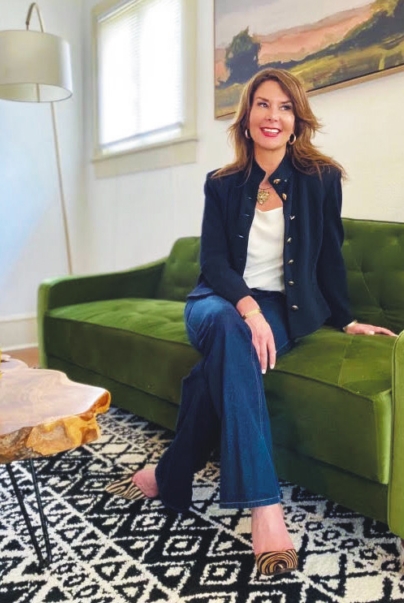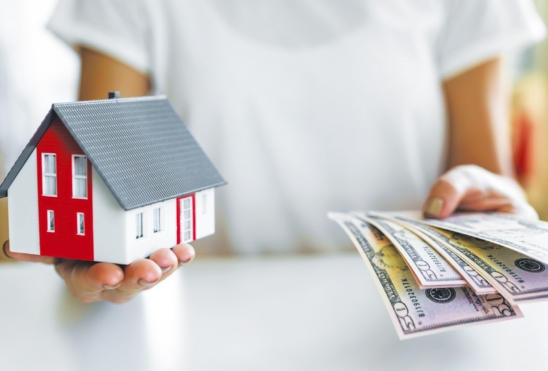Buying A Home Is More Costly

Know your financial situation
The information superhighway has been noticeably active recently on the topic of interest rates, home buying and mortgages, which is no surprise.
With all the talk of inflation, recession, economic recovery and post-COVID restructuring, it’s not hard to imagine anyone looking to change where they live might be a little nervous about the housing market.
Some common wisdom from financial advisors is to avoid spending more than 25% to 28% of your monthly income on housing costs. Of course, that’s just a guideline; your situation could be different. You might be a Lotto jackpot winner.
Why buy a house? You could be looking for your first home, you might have outgrown the home you are in, your job might compel you to relocate, or any number of reasons. Holly Roca, an agent with Keller Williams Realty, believes real estate isn’t one size fits all. Still, there are some things to understand before venturing into the world of market listings and loan applications.
“The biggest question I get is, should we wait?” she said. “Buying real estate is highly personal. These are people’s homes, their livelihood, where their kids are going to go to school.
“I think never wait if you are set up in a good position.” We’ll see what she means by good position later.
 Stacy Hooper is the regional manager for Legacy Mortgage and has been in the business of mortgages and real estate for nearly 30 years. He said what the industry is facing now is understanding the current situation and how we got here. “In 2020 and 2021, when COVID happened, [interest] rates got so low that everybody and their mom was buying houses. It got to the point that the inventory got low, there wasn’t enough inventory for the people who wanted one.”
Stacy Hooper is the regional manager for Legacy Mortgage and has been in the business of mortgages and real estate for nearly 30 years. He said what the industry is facing now is understanding the current situation and how we got here. “In 2020 and 2021, when COVID happened, [interest] rates got so low that everybody and their mom was buying houses. It got to the point that the inventory got low, there wasn’t enough inventory for the people who wanted one.”
Low inventory and high demand drove housing prices up. People with a home believed their property could create a financial windfall.
As Roca explained, owners thought they had a financial golden goose to sell. “It wasn’t unheard of to see [houses] selling for $20,000 over price, no inspection. It was insane.”
“Once those prices start going up,” Hooper said, “the only way to slow things down is for the builders to start raising their prices to offset the demand that they couldn’t keep up with. The government dumped money into the economy.”
That had the effect of making housing very volatile, so, as Hooper explained, “the only way to slow things down a little bit was to raise interest rates.”
According to the experts, those rising rates were a wake-up call for real estate buyers and sellers.
While the low interest rates made more houses available to more people, the climbing rates made houses more expensive to get and keep. People selling a home with a low-interest rate might also find that the same house at a higher interest rate might not be as attractive to someone trying to buy it. In addition to that, replacing the home you’re selling means you give up your low rate and have to pay the rate available now.
As a quick example for comparison purposes only, a $200,000 30-year loan would run around $1,200 monthly at the 2.75% rates during the pandemic. Now, loans are running around 7.25%: same house, same mortgage term costs about $1,750 monthly. You might need a raise to afford it.
“What we see,” Hooper said, “is that people who walk in that used to make $4,000 a month or $5,000 a month no longer qualify for what they want to buy.
They qualify for something, but it’s usually a house that’s so small they end up waiting, or they end up going somewhere to rent.”

“Be realistic,” Roca counsels. “Your first choice may not be your best five-year plan. There are lots of things buyers can do to prep themselves to get into the market. A lot of these buyers are setting themselves up for failure by not shopping lenders. Lenders are getting extremely creative in getting these buyers into homes. A lot of them are not using experienced agents.” That’s what she means by being in a good position. “My advice to any buyers: Make sure you have a skilled team around you that is not chasing the paycheck but really looking at the five-to-10-year goal of your real estate needs.”
Hooper explained, “The average Joe just can’t afford as much as he used to.”
So, the best advice is to know your financial situation. Be prepared before you find a house you can’t live without, and protect yourself as much as possible from future economic changes.
It’s tough to predict the future, but we all have to live in it, and the best way to do that is to be prepared and have realistic expectations.

